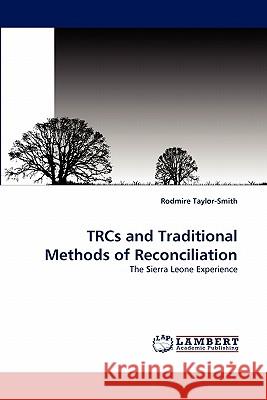TRCs and Traditional Methods of Reconciliation » książka
TRCs and Traditional Methods of Reconciliation
ISBN-13: 9783838395975 / Angielski / Miękka / 2010 / 68 str.
Democracies emerging from violent conflicts are often torn between whether priority should be given to bringing perpetrators of past violations to justice, or whether the focus should be on transitional justice measures designed to ensure political stability. This book thus examines the relationship between modern and traditional methods of reconciliation, based on field research done in Sierra Leone. It will specifically explore the Sierra Leone Truth and Reconciliation Commission (TRC) - used here as an example of modern methods of reconciliation - and the "Fambul Tok" community healing and reconciliation process - used here as an example of traditional methods of reconciliation. This book is an attempt to show that harnessing the strengths of transitional justice mechanisms, which resonates with the traditional Sierra Leonean way of resolving conflicts, and combining them with modern TRC practices, will enhance reconciliation processes in post-conflict societies. This book is especially useful to students and practitioners of transitional and restorative justice, who are contributing to the fostering of peace and reconciliation in countries that have suffered violent conflicts.
Democracies emerging from violent conflicts are often torn between whether priority should be given to bringing perpetrators of past violations to justice, or whether the focus should be on transitional justice measures designed to ensure political stability. This book thus examines the relationship between modern and traditional methods of reconciliation, based on field research done in Sierra Leone. It will specifically explore the Sierra Leone Truth and Reconciliation Commission (TRC) - used here as an example of modern methods of reconciliation - and the "Fambul Tok" community healing and reconciliation process - used here as an example of traditional methods of reconciliation. This book is an attempt to show that harnessing the strengths of transitional justice mechanisms, which resonates with the traditional Sierra Leonean way of resolving conflicts, and combining them with modern TRC practices, will enhance reconciliation processes in post-conflict societies. This book is especially useful to students and practitioners of transitional and restorative justice, who are contributing to the fostering of peace and reconciliation in countries that have suffered violent conflicts.











